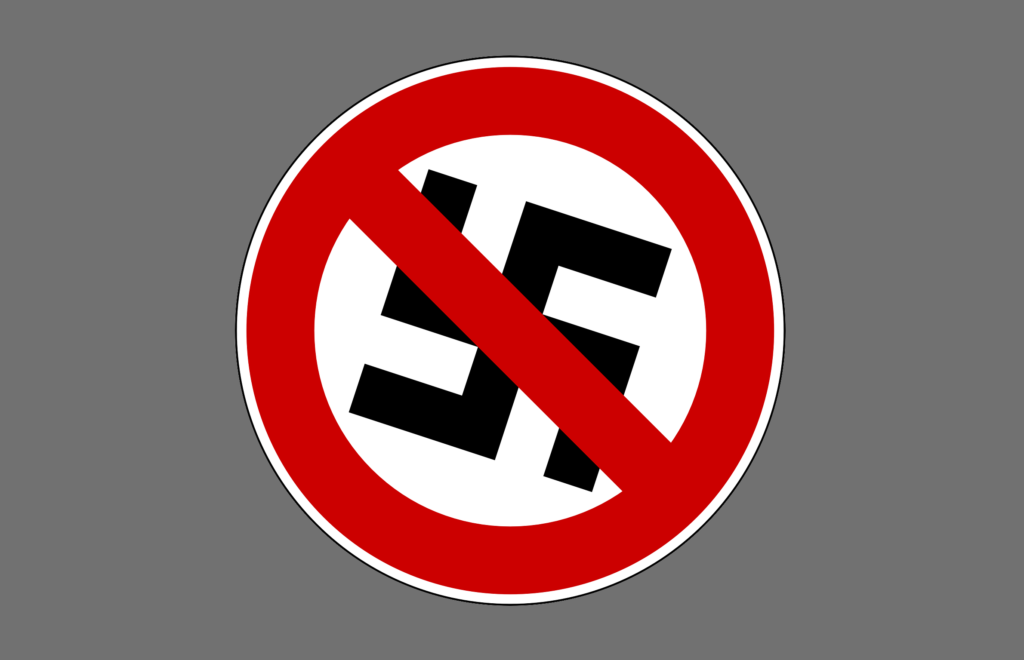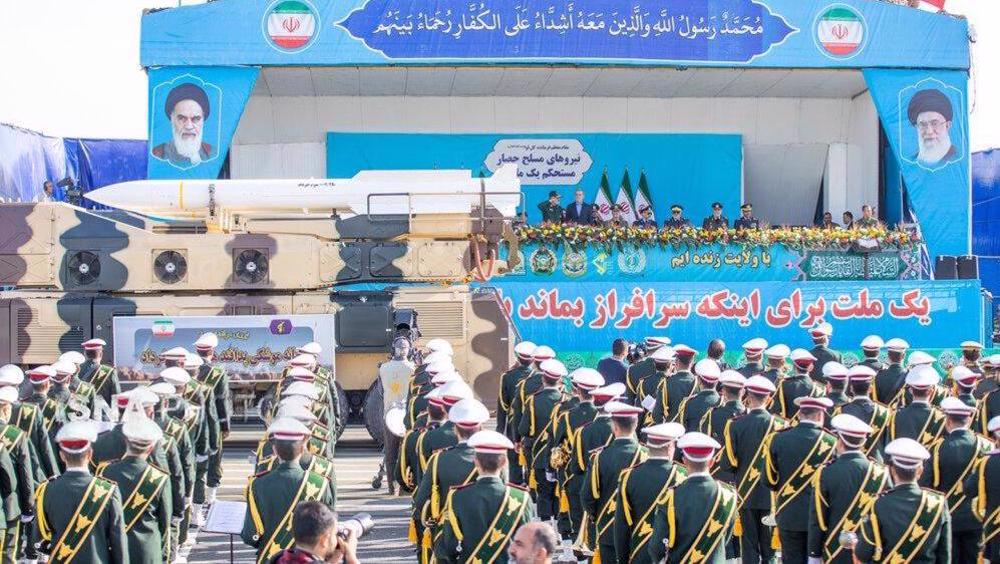RESOURCES
Submission to the Senate Legal and Constitutional Affairs Committee inquiry into right wing extremist movements in Australia
June 17, 2024 | AIJAC

Introduction and Terminology
The Australia/Israel & Jewish Affairs Council (AIJAC) appreciates the opportunity to lodge a submission in response to the Senate Legal and Constitutional Affairs Committee’s inquiry into right wing extremist movements in Australia. AIJAC is the premier independent public affairs organisation for the Australian Jewish community.
It is puzzling that, despite the Australian Security Intelligence Organisation (ASIO) and other Australian security agencies shelving the nebulous and – from both an analytical as well as policy perspective – questionable category “Right-wing extremism” three years ago, this term was still used as the basis for this inquiry. As the Victoria Police, among other domestic and international security agencies, have noted, “Individuals and groups who adhere to [right- wing extremist] ideologies have diverse and multifaceted ideological views. It is not a cohesive cohort.”
The correct terminology when discussing extremist threats, as explained by ASIO in 2021, is to speak of Ideologically Motivated Violent Extremism (IMVE) and Religiously Motivated Violent Extremism (RMVE).
There is a subset of IMVE that includes Nazis, neo-Nazis, White Nationalists and White Supremacists and associated organisations, referred to as Nationalist and Racist Violent Extremism (NRVE). As AIJAC explained in its submission to the inquiry into extremism in Victoria in 2022:
These groups, almost all of which are part of a transnational network and share members and ideologies, are “accelerationist”, meaning that they are “preparing and pushing for a ‘race war’, which…will cause societal collapse and the subsequent creation of a ‘white ethno-state’” who “believe societal collapse can be expedited through violence, including lone-actor terrorist attacks.”
In its submission to the Parliamentary Joint Committee on Intelligence and Security (PJCIS) on its review into the listing of Hizballah and The Base as terrorist organisations under the Criminal Code Act 1995, AIJAC further explained:
It is difficult to discern whether NRVEs are splintering into multiple groups, whether some are umbrellas for the others, or whether they are all a single network that operates under different aliases across the world to try to avoid listing and law enforcement. What is clear is that many of these so-called groups have the same membership and leadership, often simultaneously.
AIJAC urges the Committee to peruse both submissions for a detailed analysis of NRVE movements and the nature of the threat to Australia.
Not only is the term “right wing extremist” no longer considered appropriate by the professionals charged with monitoring extremism, but it is also unclear why this inquiry would want to retain such a narrow scope. Is there a change in the overall political or security situation that warranted an inquiry solely into “right wing extremist movements in Australia” that did not explicitly include other IMVE and RMVE extremist movements, including, for instance, the far more dangerous Islamist ones. AIJAC is not aware of any evidence of any increased security threat from NRVE movements that would explain the timing and substance of this inquiry.
This is not to say NRVE is not an ongoing threat to Australian society in general and the Australian Jewish community more specifically. AIJAC is very proud of our long-history of ground-breaking work exposing the tactics, ideology, beliefs and association of groups that would previously have been termed “right-wing extremist” – including the League of Rights, the Citizens Electoral Council, National Action, Holocaust deniers, “Christian Identity” groups, the Russian Imperial Movement (RIM) and elements of the One Nation party.
We also take pride in our public policy advocacy seeking to improve legal protections against NRVE groups – such as our efforts to encourage state and federal bans on fascist symbols such as Swastikas and Nazi salutes.
Yet despite this, AIJAC is concerned the sole focus on “right-wing” extremism in this inquiry obscures more than it enlightens regarding the problems created by NRVE, given the links, imitation, affinities and similarities that unite NRVE groups with the wider spectrum of IMVE.
In particular, we would call the committee’s attention to the fact that the entire spectrum of IMVE and RMVE intersect around antisemitism. A still-unreleased, informal AIJAC study of social media has demonstrated how extremist rhetoric, imagery and activity have become so indistinguishable that it is often difficult to know whether a neo-Nazi, a far-left activist or an Islamist extremist is responsible for some of the quotes proliferating on various social media platforms targeting Jews over the past year.
We thus find it concerning that this very narrowly-focused inquiry was announced shortly after Hamas’ invasion of Israel on October 7, 2023 – yet the consequent outbreak of antisemitism in Australia and the threat it poses to the security and well-being of Jews as well as to Australian multiculturalism overall was not explicitly included in the Terms of Reference.
Today widespread vandalism, intimidation and hateful, incendiary and even racist rhetoric under the guise of pro-Palestinian activism is arguably the foremost IMVE concern in Australia, as both the Prime Minister and Opposition Leader appropriately highlighted on June 5.
Moreover, the Jewish community is extremely concerned that almost no mainstream Muslim or Arab community organisations or leaders of note were willing to publicly condemn October 7, Hamas or the explosion of antisemitism in Australia emerging from their communities that has accompanied it. Indeed, the fact that some clerics and leaders, including mainstream ones, openly legitimised and even lauded the attack, while several preachers also engaged in blatantly antisemitic speech from the pulpit – arguably should merit their own inquiry into RMVE extremism in Australia.
It is also vital that the Government avoid concerning itself with personal beliefs. As AIJAC said in its Submission to the Senate Legal and Constitutional Affairs Committee Inquiry into the Criminal Code Amendment (Prohibition of Nazi Symbols) Bill 2023:
It is neither possible nor desirable for the Government to build re-education camps or otherwise punish citizens for their internal beliefs, no matter how noxious… No bill or policy can ever realistically destroy a belief system, but beliefs themselves are not a problem for liberal democracies, only actions based upon them.
Finally, terms like “extremism” and “radicalisation” need to be very clearly defined to avoid wasting limited resources and manpower and general government overreach.
Recommendations:
- Investigate whether there is a link between autism and mental health and NRVE to establish which social and mental health interventions, rather than security-oriented ones, might mitigate susceptibility to the associated ideas and activities.
- List the Russian Imperial Movement (RIM) – a major funder and inspirer of almost all NRVE groups in Australia – as a terrorist organisation under the Criminal Code.
- Conduct a nationwide assessment, based on concrete metrics, of the efficacy and outcomes of all Countering Violent Extremism (CVE) and Deradicalisation initiatives in Australia along the lines of that conducted by William Shawcross in the UK of its own CVE program, Prevent.
- Ensure that the Australian Government allocates anti-IMVE more resources and attention to the most urgent threats. While never neglecting NRVE, this currently requires an even greater focus on the immediate and far more prevalent threat to security and social cohesion posed by RMVE and far-left, anti-Israel, anti-Western and sometimes antisemitic IMVE groups.
Tags: Antisemitism, Far Right, Hamas, Hezbollah, Racism, Terrorism, extremism, multiculturalism





